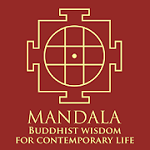
|
|
|
Home Asia Pacific South East Asia Myanmar Myanmar Protest News UN slams Myanmar crackdown, urges prisoner releaseAFP/de, October 12, 2007UNITED NATIONS -- The UN Security Council on Thursday issued a tough statement slamming the military crackdown in Myanmar, as concern mounted over some 1,000 pro-democracy protesters still held by the ruling military.
"The Security Council strongly deplores the use of violence against peaceful demonstrations in Myanmar," said the unanimous statement, adding it "emphasises the importance of the early release of all political prisoners and remaining detainees." Last month's deadly crackdown by the ruling military on protesters led by Buddhist monks left 13 dead and thousands under arrest, and triggered an international outcry. Myanmar's state-run media has said that more than half of those arrested during the protests have been released, but there has been little word of at least 950 still in custody. On Thursday, Amnesty International raised the alarm, reporting the ruling military had arrested a top democracy activist, while a monitoring group in Thailand has said one protester died after being tortured during interrogation. "Amnesty International is gravely concerned about all those arrested because of the widespread use of torture or other ill-treatment of people in custody," Catherine Baber, the rights group's acting Asia Pacific director, told AFP. "The cloak of secrecy on the part of the Myanmar authorities deepens our concerns," she said in an e-mail from London. The Assistance Association for Political Prisoners (AAPP), made up of former detainees who have fled to Thailand, on Wednesday said that one detained dissident had died "as a result of torture" during interrogation. The UN Security Council statement, which was watered down to win the consent of members Russia and China, urged "the government of Myanmar and all other parties concerned to work together towards a de-escalation of the situation and a peaceful solution." The statement also called on Myanmar to "create the necessary conditions, for a genuine dialogue" with opposition icon Aung San Suu Kyi "in order to achieve an inclusive national reconciliation with the direct support of the United Nations." UN chief Ban Ki-moon is to send his special envoy Ibrahim Gambari back to southeast Asia this weekend for talks on Myanmar with regional partners and to prepare the ground for a return visit to Yangon. US Ambassador to the UN Zalmay Khalilzad said Thursday's statement would strengthen Gambari's hand in his negotiations with the ruling military. And he urged Myanmar's ruling generals to do what the statement demands, warning: "We will not relent, we will persist until the situation is put on a right trajectory." In Washington, the White House said the regime's commitments to work with the United Nations and its special envoy Gambari, "must be followed by action." Gambari, a seasoned troubleshooter who is the UN pointman in efforts to promote national reconciliation, will first go to Thailand and then head to Malaysia, Indonesia, India, China and Japan, before hoping to return to Myanmar. Britain's UN Ambassador John Sawers highlighted the fact that Thursday's move marked the council's "first ever (formal) statement" since the Myanmar crisis erupted. "It is a very strong and very clear message to the government of Myanmar that the Security Council is united in its opposition to the way in which the (military regime) has pursued its policies at home," he said. It is the latest in a series of moves by the international community aimed at bringing the ruling military to task, with the United States - Myanmar's harshest critic - also threatening new sanctions. An MP-elect from Myanmar's self-proclaimed government-in-exile said on Thursday that world pressure coupled with the threat of sanctions could force the ruling military into talks with opposition leaders. "Sanctions will send strong messages," said Bo Hla-Tint, of the National Coalition Government of the Union of Burma, who lives in the United States. Meanwhile, on the streets of Yangon businesses are struggling to recover after the security crackdown. Armed forces no longer patrol the streets, but a night-time curfew and a general climate of fear were keeping people inside. "We are still afraid. We dare not talk about politics or protests or what happened in previous weeks, as we cannot differentiate between ordinary people and the militia groups," said a 40-year-old fruit vendor. |
 Get your Korean Buddhist News here, brought to you by BTN-Buddhist Channel |
 |
 The Mandala app brings together Buddhist wisdom and meditation techniques with the latest insights of psychology and neuroscience to handle the challenges and complexities of modern life. The App offers a series of engaging talks and conversations with experts on a wide variety of topics, such as managing stress, dealing with adversity, developing greater resilience, cultivating empathy and compassion, creating healthy relationships, and many more. These topics are explored to help find greater peace, meaning and joy in our lives. Our panel of experts include Dr, Thupten Jinpa, Daniel Goleman, Kelly McGonigal and others.FREE DOWNLOAD here |
| Point
your feed reader to this location |
| Submit an Article |
| Write to the Editor |

